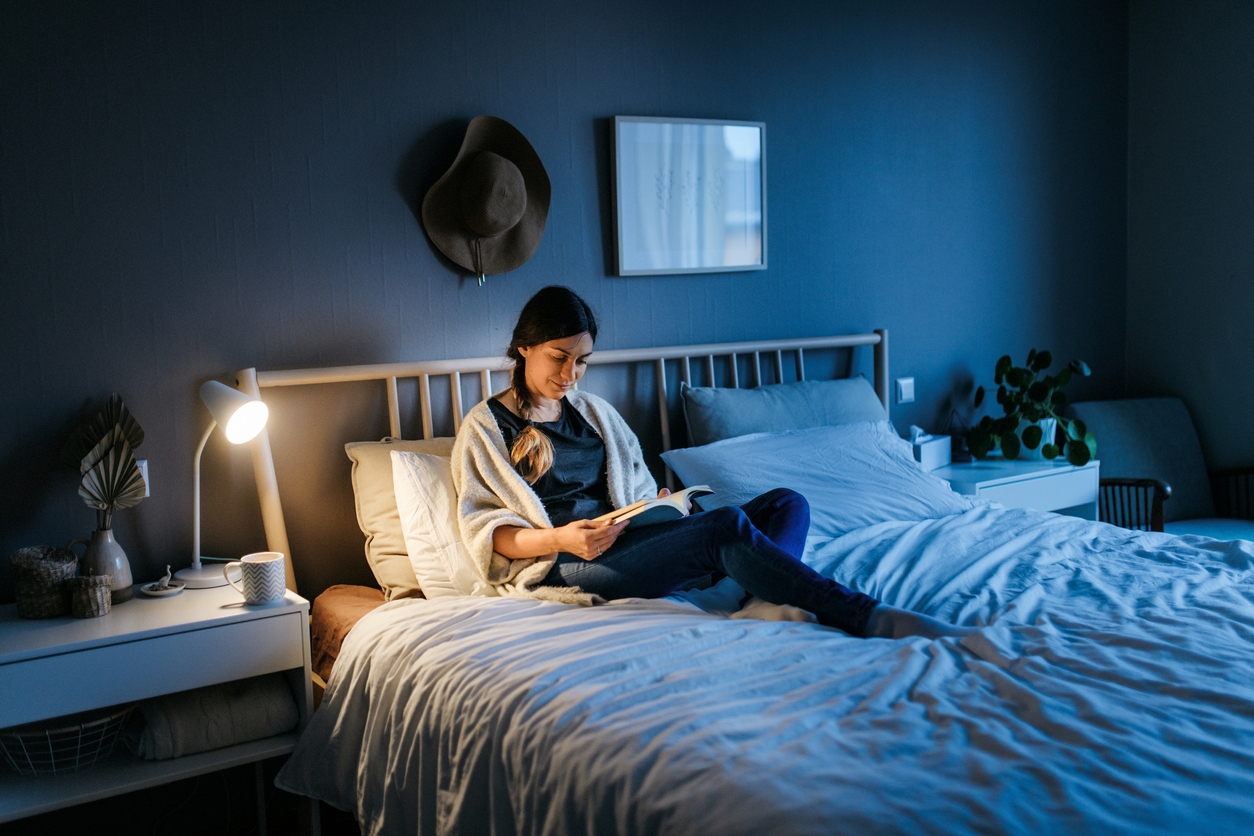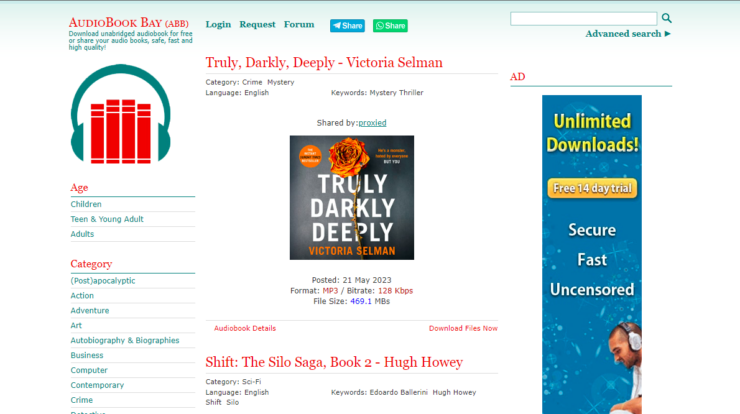
It’s the end of a long day, and you’re ready to unplug and immerse yourself in a good book. You love reading at night, but is there a way to get even more from your favorite pastime?
The right equipment, reading position, environment, and more can help you make the most of reading before bed. Keep these tips in mind the next time you settle down to prepare your body and mind for a good night’s rest.
Invest in a Reading Light
While you may enjoy winding down with a book before bed, keeping the light on may not be an option. You may either prefer to keep the lights off to facilitate better sleep or share a room with someone who goes to bed earlier than you. Either way, you’ll need a good reading light.
Rather than a flashlight or clip-on reading light, consider buying a reading headlamp. Not only do headlamps leave both your hands free to hold the book and turn the pages, but some of them also come with a red light filter. This spectrum of light protects your night vision, so you see what you’re reading without worrying about blue light keeping you up.
Find a Quiet Place
Reading at night is the perfect way to let your brain know it’s time to wind down and destress. Keep distractions at a minimum by reading in a quiet place, which means shutting off the TV, radio, computer, and anything else that may stimulate your brain. If you have children or pets, try waiting to read until after they’ve gone to bed.
While it’s fine to listen to music as part of your bedtime reading routine, choose ambient music that relaxes you rather than songs that make you want to get up and dance. Find a playlist designed specifically for nighttime reading or unwinding.
Get Comfortable
It’s hard to focus on a book and become engrossed in the story when you’re in an uncomfortable position. Find a comfy couch or armchair to read in, or read in your bed. Not only is getting comfortable great for falling into the story, but it’s also good for helping you drift off to sleep faster.
If you slouch while reading, you’re sure to notice it the next day when you experience aches and pains. Prop yourself up on pillows or ease yourself into a reading chair. No matter where you get comfortable, switch positions every 30 to 45 minutes to avoid the effects of poor posture.
Read Physical Books
With an e-reader, you can carry hundreds of e-books in a slim device that fits into a pocket, purse, or backpack easily. For all their convenience, some e-readers make it difficult to drift off to sleep and cause poor sleep quality.
E-readers that emit blue light can disrupt your sleep pattern and make you feel more tired the next morning. The same is true for reading from a smartphone or tablet that emits blue light.
When possible, read from physical books before bed rather than an e-book. If you’ve already bought and downloaded a book on your e-reader, see if your local library has a physical copy you can use for bedtime reading. That way, you get the best of both worlds.
Meditate
You’ve got a hands-free reading light and a comfortable, quiet place to read in, but your mind refuses to settle down enough so you can focus on your book and enjoy the story. When a good book isn’t enough to help you drift off to sleep, you may need some extra help.
Meditating for a few minutes before reading can calm your mind and all the thoughts racing through it. Something as simple as intentional breathing, where you inhale from the top down and exhale from the bottom up, can help clear your mind.
Reading before bed can help you drift off to slumberland faster and enjoy a better quality of sleep. Do your mind and body a favor and add the above tips to your bedtime routine.


